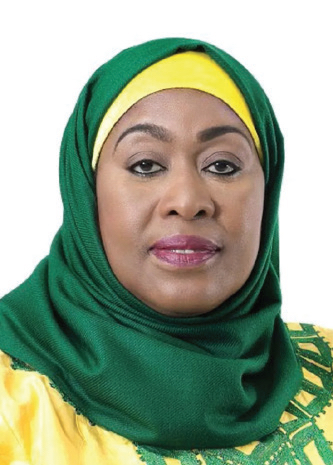Her Excellency Samia Suluhu Hassan is Tanzania’s sixth and first female president, sworn in on 19 March 2021 following the death of John Pombe Magufuli.
Birth: 27 January 1960 (Age: 65)
Source of Influence: Administration of Religious Affairs, Political
Influence: President of Tanzania
School of Thought: Sunni
Status: Featured in current year
Her Excellency Samia Suluhu Hassan is Tanzania’s sixth and first female president, sworn in on 19 March 2021 following the death of John Pombe Magufuli.
Politician: Born in 1960 in the Sultanate of Zanzibar, she ran for public office in 2000 and was elected as a special seat member to the Zanzibar House of Representatives. In 2010, she was elected to the National Assembly and was appointed as the Minister of State for Union Affairs. In 2015, she became the first female vice-president in the history of Tanzania after John Magufuli was elected president. The same pair won the 2020 elections.
President: Assuming office, Hassan swiftly reversed Magufuli’s COVID-19 denialism, mandating vaccines nationwide—she publicly received hers in August 2021. She lifted bans on opposition rallies, released leaders like Tundu Lissu and Freeman Mbowe, and eased media restrictions. Diplomatically, she diffused Kenya tensions over Bagamoyo Port and boosted tourism via UAE partnerships. In July 2025, she inaugurated the Kigongo-Busisi Bridge (East Africa’s longest) and Kwala Dry Port, enhancing trade. CCM nominated her for the October 2025 elections, where she seeks a full term.
Key Challenges: The economic reforms have bolstered the economy and her leadership style has increased confidence all round. Tanzania’s GDP growth rate has averaged 6% per year since Hassan took office, inflation has fallen and foreign exchange reserves have increased. Tourism has also seen record increases. Some constitutional reforms were passed in March 2024, but more critical ones have been delayed till after the 2025 general elections.
News about Samia Suluhu Hassan
- No approved news items yet.



